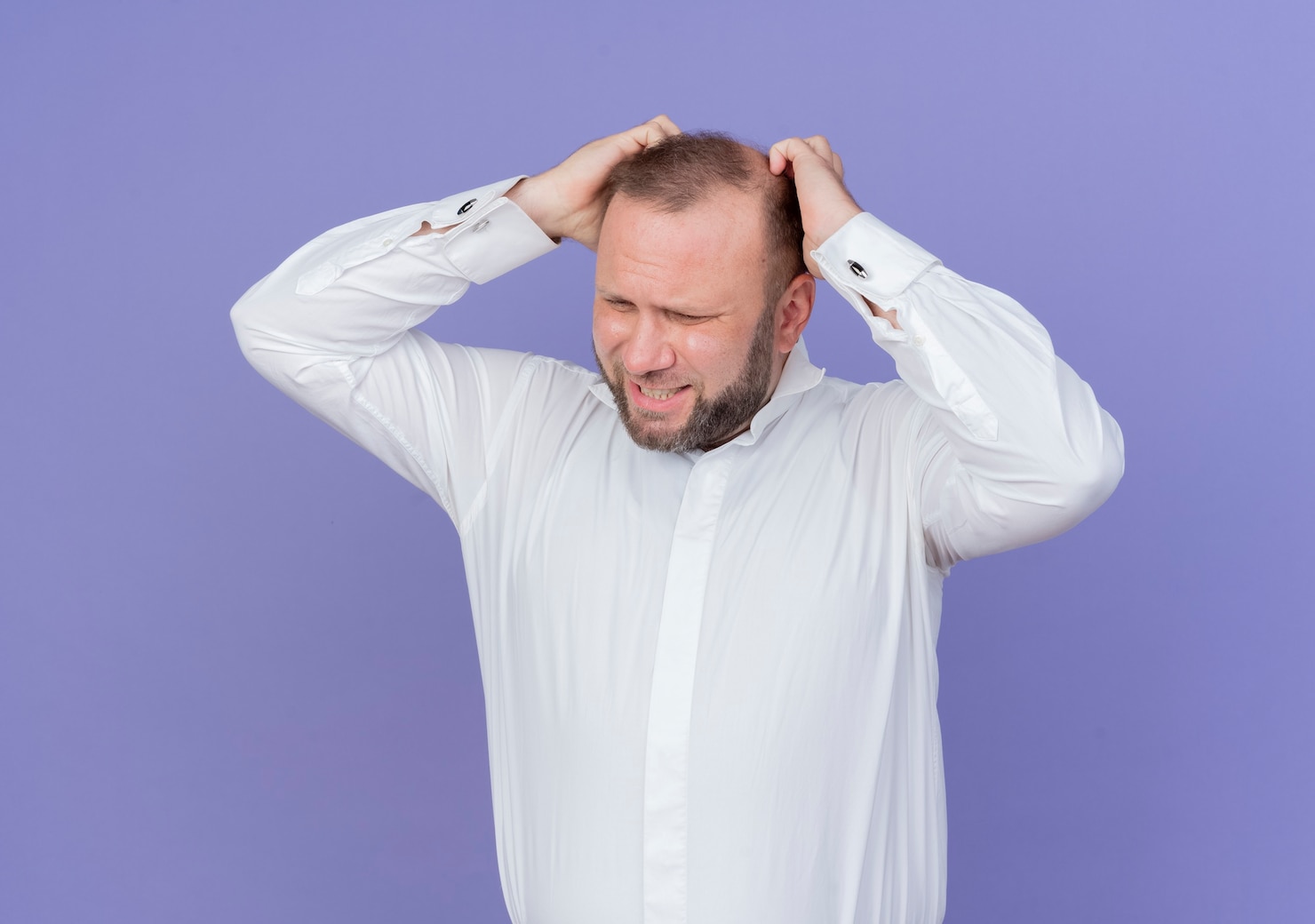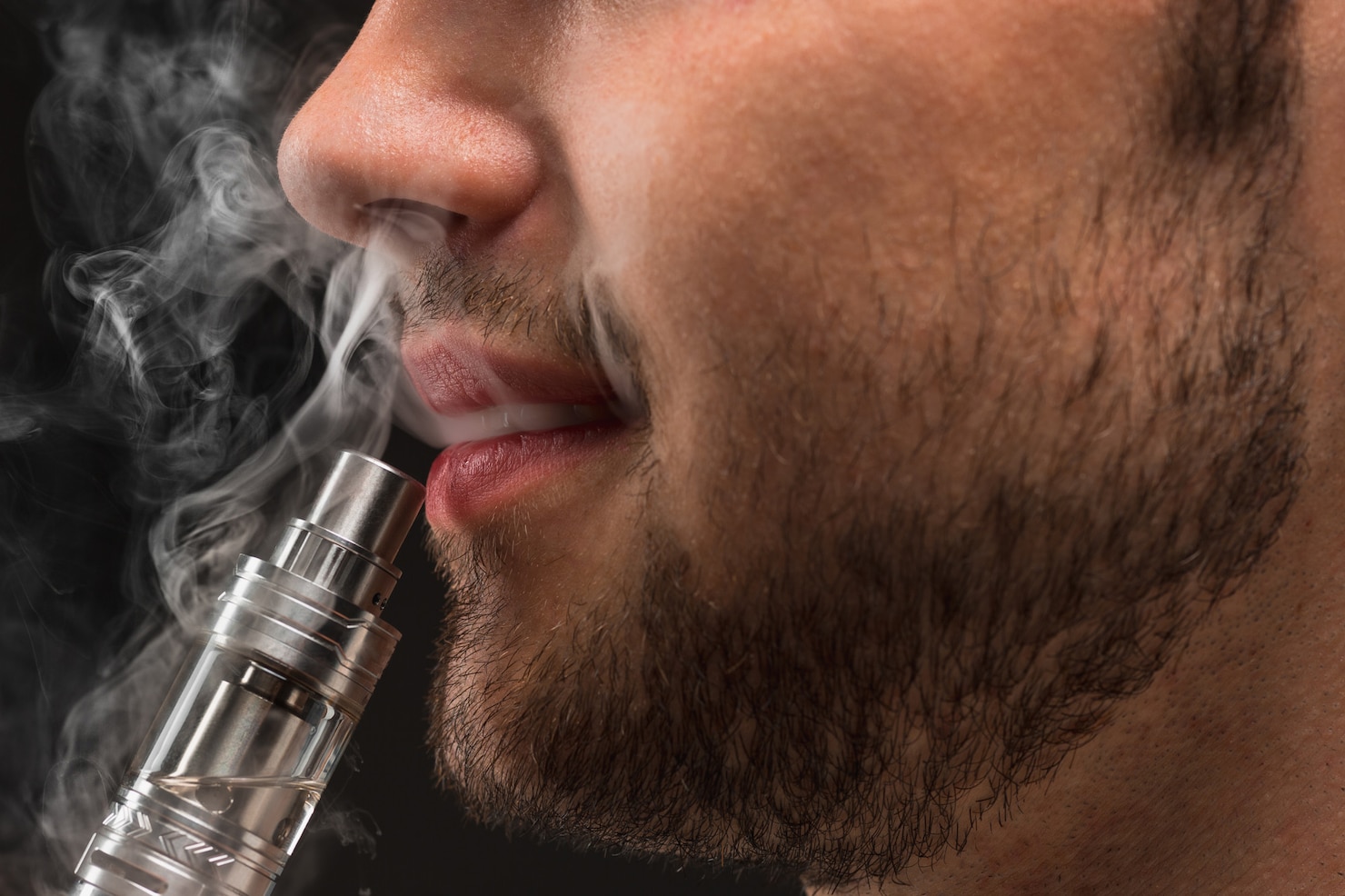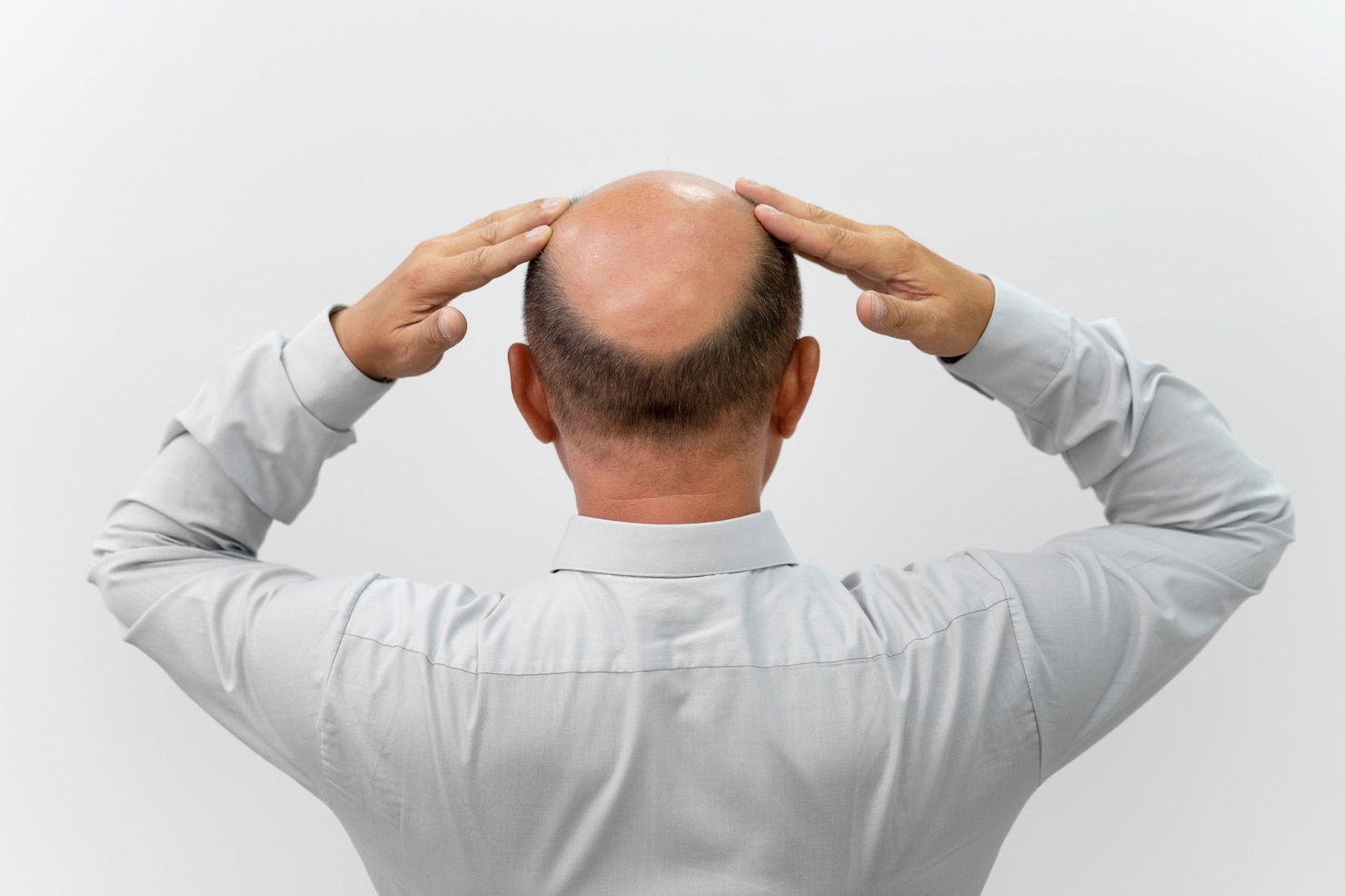
While smoking is widely known to have detrimental effects on overall health, its impact on hair health is often overlooked. Many people still wonder about “Does nicotine cause hair loss?”. This is evident in the increasing searches for terms such as “smoking and hair loss” and “Can smoking cause hair loss?” online.
In this blog post, we will delve into the scientific background of hair growth, the link between nicotine and hair loss, and other factors contributing to hair loss. Additionally, we will provide you with valuable insights on essential nutrients and hair care products that can help maintain healthy hair.
Whether you're a smoker or simply curious about the effects of nicotine on hair, this article will provide you with the knowledge you need to make informed decisions about your hair care routine.
Smoking and Hair Loss: Scientific Background
Explanation of the Hair Growth Cycle

Image Source: FreePik
To understand the potential impact of smoking on hair loss, it's important to grasp the hair growth cycle. The hair growth cycle consists of three main phases: the anagen (growth) phase, the catagen (transition) phase, and the telogen (resting and shedding) phase.
During the anagen phase, the hair follicles actively produce new hair cells, resulting in visible hair growth. This phase can last for several years, varying from person to person. Following the anagen phase, the catagen phase occurs, during which the hair follicles shrink and detach from the blood supply. Lastly, the telogen phase is characterized by hair follicles entering a resting period before shedding old hair to make way for new hair growth.
Discussion of the Impact of Smoking on Hair Follicles and Hair Growth
Smoking has been found to have adverse effects on hair follicles and hair growth. Nicotine and other harmful substances in tobacco smoke can restrict blood vessels and decrease blood flow to various parts of the body, including the scalp. This compromised blood circulation can affect the delivery of essential nutrients and oxygen to the hair follicles, hindering their proper function and impeding hair growth.
It is worth noting that the impact of smoking on hair loss can vary among individuals, depending on factors such as the duration and intensity of smoking, genetic predisposition, and overall health. However, adopting a smoke-free lifestyle and maintaining a healthy hair care routine can significantly contribute to maintaining optimal hair health.
Key Takeaway:
Understanding the hair growth cycle is essential to comprehend the potential effects of smoking on hair loss. Smoking can negatively impact hair follicles by restricting blood flow and disrupting hormone levels. Taking steps to quit smoking and implementing a healthy hair care routine can promote healthier hair growth.The Link between Nicotine and Hair Loss

Image Source: FreePik
Effects of Nicotine on Blood Circulation and Nutrient Delivery to Hair Follicles
Nicotine, a highly addictive substance found in cigarettes, has significant effects on blood circulation and nutrient delivery to hair follicles. When you smoke, nicotine enters your bloodstream and constricts the blood vessels throughout your body, including those in the scalp. This constriction reduces the amount of blood flow reaching the hair follicles, which are responsible for producing and nourishing your hair.
With restricted blood circulation, the hair follicles receive fewer essential nutrients and oxygen necessary for healthy hair growth. Inadequate nutrient supply weakens the hair follicles over time, leading to decreased hair quality, thinning, and potentially contributing to hair loss.
Influence of Nicotine on Hormone Levels and Its Potential Impact on Hair Loss
Nicotine can also influence hormone levels, which play a crucial role in regulating hair growth and maintaining hair health. Research suggests that smoking and nicotine exposure can disrupt the balance of hormones in your body, including androgens, such as dihydrotestosterone (DHT). DHT is known to contribute to hair miniaturization and, in some individuals, can lead to hair thinning and eventual hair loss.
By interfering with hormone levels, nicotine may accelerate the hair follicle's transition from the growth phase (anagen) to the resting phase (telogen). This disruption can shorten the overall lifespan of the hair follicles, leading to decreased hair density and increased shedding.
Key Takeaway:
Nicotine's influence on blood circulation and hormone levels can have adverse effects on hair follicles, leading to decreased nutrient delivery, weaker hair follicles, and potential hair loss. By quitting smoking, you can mitigate these effects and improve your hair's overall health and growth potential.Research Studies on Smoking and Hair Loss
Overview of Scientific Studies Investigating the Relationship
Numerous scientific studies have delved into the relationship between smoking and hair loss, providing valuable insights into the potential effects of smoking on hair health. Researchers have conducted observational studies, population-based surveys, and clinical investigations to examine this association more closely.
These studies have aimed to understand the impact of smoking on various aspects of hair loss, such as hair thinning, pattern baldness, and overall hair density. By analyzing large sample sizes and controlling for confounding factors, researchers have been able to draw meaningful conclusions about the link between smoking and hair loss.
Presentation of Findings and Statistical Data on Hair Loss Among Smokers
The findings from these studies consistently suggest a strong association between smoking and increased risk of hair loss. For example, a study revealed that smokers were twice as likely to experience moderate to severe hair loss compared to non-smokers. Additionally, another study found a positive correlation between the number of cigarettes smoked per day and the severity of hair thinning.
These studies also highlight the cumulative effects of smoking on hair loss. Research indicates that the duration and intensity of smoking are important factors in determining the extent of hair loss. The longer an individual has been smoking and the greater the number of cigarettes smoked, the higher the likelihood of experiencing hair loss.
The statistical data from these studies demonstrate a clear trend, emphasizing the detrimental impact of smoking on hair health. While individual responses may vary, the scientific evidence suggests a strong link between smoking and an increased risk of hair loss.
Key Takeaway:
Scientific studies consistently indicate a significant association between smoking and hair loss. These studies provide statistical evidence, showing that smokers are at a higher risk of experiencing hair loss compared to non-smokers. The duration and intensity of smoking also play a role in determining the extent of hair loss. Understanding these findings can serve as motivation to quit smoking and prioritize a healthy lifestyle to promote optimal hair health.Other Factors Contributing to Hair Loss

Image Source: FreePik
Exploration of Additional Lifestyle Factors That Can Contribute to Hair Loss
While smoking is known to have a detrimental impact on hair health, it's essential to recognize that there are other lifestyle factors that can also contribute to hair loss. Understanding these additional factors can help you make informed choices to maintain the health and vitality of your hair.
Factors such as poor nutrition, inadequate sleep, and excessive styling can all play a role in hair loss. A diet lacking essential nutrients, especially those vital for hair growth like vitamins A, C, and E, can weaken hair follicles and result in increased hair shedding.
Similarly, irregular sleep patterns can disrupt the natural hair growth cycle, leading to hair thinning and loss over time. Additionally, excessive heat styling, frequent use of chemical treatments, and tight hairstyles can cause physical damage to the hair shaft, weakening it and increasing the risk of breakage.
Discussion of the Interaction Between Smoking, Stress, and Hair Health
It's important to highlight the connection between smoking, stress, and hair health. Stress can have a significant impact on hair follicles, leading to conditions such as telogen effluvium—a temporary form of hair shedding. When combined with smoking, the effects can be even more pronounced. Nicotine, a major component of cigarettes, can amplify the physiological response to stress, further exacerbating hair loss.
Furthermore, stress and smoking often go hand in hand, as individuals may turn to smoking as a coping mechanism during challenging times. This creates a vicious cycle, as smoking can increase stress levels and, in turn, contribute to hair loss. Breaking this cycle by adopting healthier coping mechanisms and quitting smoking can have positive effects on both your overall well-being and the health of your hair.
Conclusion
While smoking is a significant factor in hair loss, it's crucial to consider other lifestyle factors that can contribute to hair health. Nutritional deficiencies, sleep patterns, and styling practices all play a role in maintaining vibrant and strong hair. Additionally, the interaction between smoking, stress, and hair loss highlights the need to address both factors to promote optimal hair health.
Maintaining healthy hair involves considering multiple lifestyle factors, including nutrition, sleep, and styling practices. The interaction between smoking, stress, and hair loss underscores the importance of adopting healthy coping mechanisms and quitting smoking to preserve the health and vitality of your hair.
By making informed choices and addressing these factors, you can promote optimal hair health and reduce the risk of hair loss.


